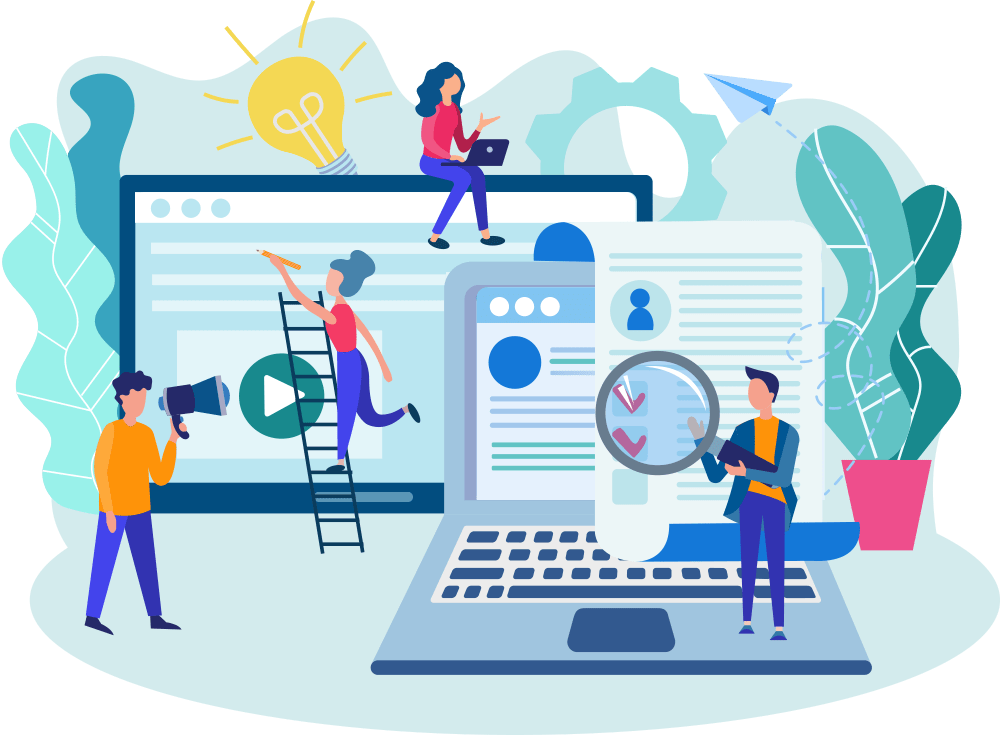Affordable website to help your business grow
- Unique web design with unlimited revisions
- Enjoy express delivery within 3 working days
- Join more than 3,000 very happy customers

You just need something simple to tell people what you do?
Our standard websites are built on Core Programming Languages and also on WordPress so are fully responsive, feature-rich and give you a solid foundation to build upon. You’ll be hard pushed to find better value anywhere else.

Website features
There are too many features to list here, so let us know if you need something else.
Content Editor
Contact Forms
Google Map
Newsletter Signups
Image Slideshows
Image Galleries
Video Galleries
Social Media
What Pages should you include?
Home page
Every website needs a home page, it’s the first page visitors land on when they visit your domain name.
About page
Your about page is where you tell visitors more about your company and what you stand for.
Products & services
You should have a page for each product or service, highlighting the features and benefits.
FAQs
Visitors may have questions, a frequently asked questions page can help them find the answers.
Portfolio
Visitors may want to see examples of your work, a portfolio page is where you would showcase them.
Testimonials
Visitors may want to see reviews from customers, a testimonial page is where you would show them.
Blog
Your blog is an opportunity to help your visitors. Give them free tips on a subject they need help with.
Contact
This is where you tell visitors how to contact you. Include a form and map to show your location.
Privacy policy
This is where you tell website users how you will process their personal data and comply with GDPR.
Terms & conditions
This is where you tell customers about the terms and conditions relating to your business activities.
Questions to ask a web designer
Some basic questions you should ask a potential web designer.
Your web designer doesn’t have to be local to you, but it is usually beneficial to use a company who is located in the same country.
Different working hours can cause delays which could lead to frustration if there’s a problem with your site.
No one wants to use a web designer that will be there one day and gone the next, so try to use someone that is well established.
We often receive enquiries from clients who had used someone just starting out but their project didn’t get finished as their designer had disappeared.
Always make sure you take a look at a web designer’s previous work to see what experience they have.
- Do you like the style of the sites they show you?
- Have they worked within the same sector before?
If they don’t have a portfolio it may be because they are just starting out.
Ask your web designer if they provide you with a bespoke service based on your requirements, or a template already created that anyone else can use.
The latter may well be cheaper, but if you’re looking to stand out you will want to ensure your site doesnt look exactly like a competitor.
Using a competitor as inspiration to create your own bespoke site is a good idea, but copying them is not.
This helps you to understand how you will get your ideas across and then end up with the finished result.
- How do you submit your design brief to them?
- How do you send them your website content?
- Can you make changes if you don’t like something?
You need to understand how easy to use it will be for you to manage moving forwards. Will you be able to edit your website content yourself, or will it be complicated so even minor changes require the help of a designer?
Another factor to consider is what happens in the future if you want to move to a new supplier. Is the platform transferrable between different website hosts, or is it a fully hosted service that can’t be moved?
More questions that lead on from this one:
- Is the platform regularly updated?
- Is it secure?
- What features does it offer?
- Is it SEO friendly?
Make sure you fully understand the solution you are looking at. As your business advances, will your platform advance with you, or will you need to start over again?
Every website needs a domain name – that’s your website address that appears in the browser – it’s how your visitors will find you.
You can easily register your own domain with a multitude of online domain companies, but sometimes it’s good to use a designer that does the lot for you.
All websites need hosting to be visible online. Your site files and database need to be stored on a (fast!) server in order to available to your customers.
Does your web designer also provide hosting? If so, who do they host with? How reliable is that website host?
Ask to see some other websites they host and see how fast they load to get an idea of the speed you can expect.
If you’re not web savvy you’ll no doubt need support at some point in the future after your new site goes live.
So, it’s important to understand whether you are just purchasing a design template, or whether your web designer will be there to support you throughout your website ownership journey.
Do they provide a support contract that allows you to contact them and ask for help working the content management system, or if you see an error on your site and don’t know how to fix it?
There’s no point owning a website if nobody can find it!
If you’re not an internet marketing whizz you’ll need help getting your website seen. A new site doesnt just land on the first page of Google, it needs a lot of work.
- Does your web designer have experience with SEO (the process of ranking higher on Google)?
- Are they creating your site in SEO and mobile friendly formats?
- Can they help you build a presence on social media?
